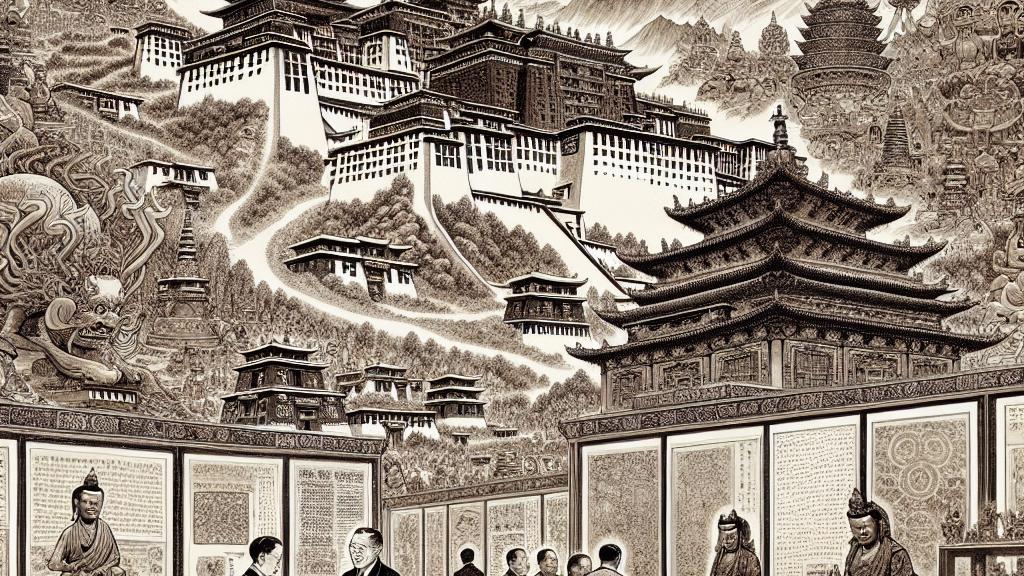Understanding the Role of Tibet and the Dalai Lama in China's Politics
Overview
- Wang Huning's noteworthy visit to a Tibetan Buddhism exhibition reveals China's strategic mindset regarding the Dalai Lama's succession.
- The Communist Party is intensifying its focus on nurturing national unity and fostering ethnic solidarity among diverse groups.
- As the Dalai Lama approaches his 90th birthday, urgent discussions about his succession plan are taking center stage.

Key Political Moves in Tibet
In Beijing, an important chapter in Tibetan Buddhism is unfolding. Recently, Wang Huning, one of China's top political figures, made headlines by visiting an exhibition dedicated to the reincarnation of Tibetan Buddhas. This exhibition, which explores the intricate history and customs surrounding reincarnation, serves not only as an educational resource but also as a demonstration of the Chinese government’s active role in shaping religious narratives. As the revered Dalai Lama approaches the significant milestone of his 90th birthday, there’s a growing sense of urgency about his succession. Wang's visit is not just symbolic; it signifies a proactive stance on the part of the Chinese government to prepare for potential changes in Tibetan leadership. This strategic engagement illustrates a broader effort to underline that the process of reincarnation has historically required approval from the central authorities in China, reinforcing the Party's narrative that Tibet is an inseparable and vital part of the nation.
Cultural and Political Unity
Throughout his insightful visit, Wang Huning, accompanied by CPPCC members, delivered a powerful message centered on the importance of national unity and ethnic solidarity. They stressed how vital it is for all ethnic groups, including Tibetans, to cultivate a strong sense of identity that aligns with the overarching theme of the 'great motherland.' This isn't just political rhetoric; it's an intentional effort to weave together China's diverse cultural tapestry into a cohesive national identity that celebrates both Chinese heritage and socialist ideals. The exhibition vividly illustrates this strategy, showcasing how Tibetan Buddhist traditions can coexist with the broader narrative of Chinese culture. By emphasizing this connection, the Chinese government aims to present Tibet not as a separate entity but as an integral component of the national identity. Ultimately, this reflects the delicate balance that China strives to maintain—one that respects cultural uniqueness while ensuring political harmony and oversight.

Loading...